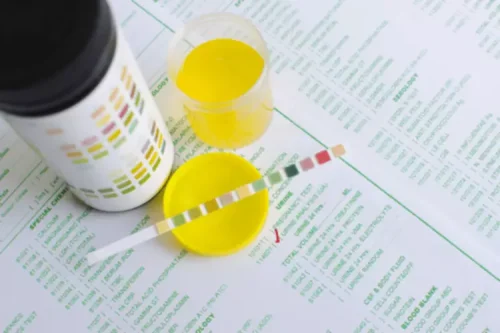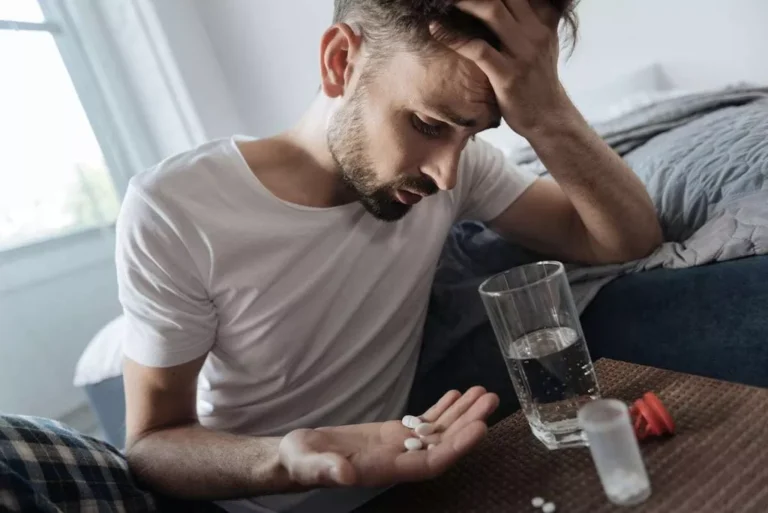Treatment for amphetamine withdrawal PMC

The resulting danger is that those addicted to a substance may continue using it merely to avoid the unpleasantness of withdrawal symptoms. Symptoms of withdrawal range from sweatiness, shakiness, tremors, and seizures to upset stomach, diarrhea, and vomiting. Irritability, agitation, restlessness, and sleep disruption are common withdrawal symptoms for many drugs, as are muscle cramps, headaches, and changes in blood pressure and heart rate.
Does your insurance cover Amphetamine detox?

We also want to thank Dr. Silvia Minozzi and other members of the Cochrane Drug and Alcohol Group for their invaluable comments on the review. Comparison 1 Any pharmacological treatment versus Placebo, Outcome 4 Average score in craving. Comparison 1 Any pharmacological treatment versus Placebo, Outcome 2 Average score in global state.
How Long Do Amphetamines Stay in Your System Based on Routes of Exposure?
Withdrawal symptoms occur when drug use is abruptly stopped or diminished. There are changes in neurotransmitter activity and receptor sensitivity in various brain systems. The resulting symptoms constitute withdrawal, and the effects a person experiences are generally the opposite of those induced by the drug. When a person has been using amphetamines for a long period of time they will experience physiological symptoms if they abruptly quit taking the drug. Withdrawal from amphetamines — and many other substances — is difficult to get through.
More Questions about Treatment?

Over time, various neurochemical systems of the brain adjust their output and sensitivity to compensate for its presence, typically producing increased amounts of stimulating neurochemicals like noradrenaline. When the alcohol is then abruptly stopped after long, heavy use, the brain, unable to immediately readjust its chemistry, is suddenly subject to overstimulation. Among how long do amphetamines stay in your system the consequences are tremors (“the shakes”), spikes in heart rate and blood pressure, irritability, nausea, and anxiety. Hallucinations—especially seeing small moving objects—and seizure can occur. The stimulant cocaine has a very short half-life; acute withdrawal can begin as little as 90 minutes after the last dose, peaks around 3 days, and lasts a week to 10 days.
- These hormones also cause you to feel like you have more energy and can do things faster and longer.
- This feeling is one of the largest reasons why withdrawal can be such a difficult process because you are essentially reworking your brain.
- Symptoms of withdrawal range from sweatiness, shakiness, tremors, and seizures to upset stomach, diarrhea, and vomiting.
- Ultimately, how long do amphetamines stay in your system has more to do with your drug using behaviors than anything else.
- According to the National Institute on Drug Abuse, more often than not, relapse episodes result when needed treatment supports are lacking after detox treatment.
- The person initially experiences a “crash” that lasts 1-2 days and then experiences a longer period of withdrawal that can last anywhere from five days to several weeks.
Sensitivity analysis is an analysis used to determine how sensitive the results of a study or systematic review are to changes in how it was done. Sensitivity analyses are used to assess how robust the results are to uncertain decisions or assumptions about the data and the methods that were used. All searches included non‐English language literature and studies with English abstracts were assessed for inclusion.

How Long Does Withdrawal Last? Amphetamine Withdrawal Timeline
- Stopping alcohol consumption often brings on “the shakes,” or tremors, most noticeable as uncontrollable shaking in the hands.
- For many, what starts out as a recreational pursuit, soon turns into overwhelming cravings for more of the drug.
- Sometimes, symptoms of stimulant withdrawal can make you seem hungover or drunk (intoxicated).
- In extreme cases, withdrawal symptoms can even worrisome for your physical health.
See risk of bias tables in the « Characteristics of included studies » table. Studies were considered at high risk of bias if they used some systematic, non‐random approach, i.e. date of birth, date of admission, clinic record number, by clinician. The person initially experiences a “crash” that lasts 1-2 days and then experiences a longer period of withdrawal that can last anywhere from five days to several weeks. Some people try to handle these issues with home remedies for amphetamine withdrawal. Those can range from trying to grin-and-bear through the withdrawal period to attempting to manage the symptoms with natural and over-the-counter concoctions. These hormones also cause you to feel like you have more energy and can do things faster and longer.

Amphetamine Withdrawals
Most people who take it as directed don’t have any issues when they quit. But if you use it too often or too much, you may notice effects when you stop. If you feel that any of our content is inaccurate, out-of-date, or otherwise questionable, please contact at All Addiction Resource content is medically reviewed or fact checked to ensure as much factual accuracy as possible.
Amphetamine Addiction Withdrawal
One study did not specify any method of blinding and was determined to be at unclear risk of bias. Four studies, involving 125 participants, met the inclusion criteria for this review (seeCharacteristics of included studies). In total, 59 participants received treatment for amphetamine withdrawal (37 amineptine, 22 mirtazapine) compared to 66 participants who received placebo. Acute withdrawal typically lasts from one to four weeks, while post acute withdrawal can go on for as long as three to six months. If you’re stopping and starting amphetamine use every other week or every other month, the brain never really gets a chance to recover from the drug’s effects. The most common ways people access help from Dextroamphetamine are through inpatient and outpatient treatment.
- Our comprehensive programs, including partial hospitalization and residential treatment, are tailored to guide you toward lasting healing.
- These are some of the reasons so many people who try to go it alone in recovery end up relapsing.
- Amphetamines are a group of drugs that act as central nervous system stimulants to speed up brain activity and other bodily functions.
- The good news is that your hunger levels should return to normal after being suppressed by the amphetamines.
- This behavioral dependence can also drive people back to amphetamines when they are trying to quit.
